Reports: Mainland Chinese Joining Pro-Democracy Hong Kong Protesters
China’s worst nightmare may be happening: Mainland Chinese citizens are now participating in pro-democracy protests in Hong Kong, according to recent reports.
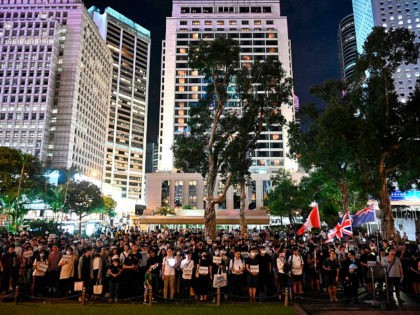
China’s worst nightmare may be happening: Mainland Chinese citizens are now participating in pro-democracy protests in Hong Kong, according to recent reports.

A Hong Kong protest organizer accused masked men of attacking him and a friend Thursday with baseball bats shortly after police denied his group, the Civil Human Rights Front, a permit for this weekend’s planned protests.
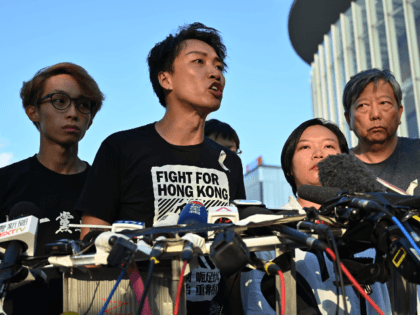
After Hong Kong chief executive Carrie Lam made remarks on Tuesday that indicated she might invoke a law that would give her broad emergency powers to deal with the protest movement, arguments about whether such a move would save, or destroy, Hong Kong’s economy have boiled across the island and among international observers.
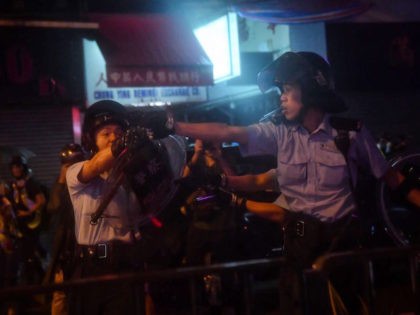
Hong Kong chief executive Carrie Lam on Tuesday insisted the police have responded appropriately to violent behavior by protesters and vowed to “stamp out that violence through law enforcement actions,” although she added she was willing to talk with peaceable protest leaders.
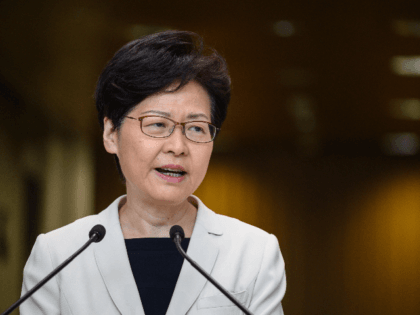
ProgressUST, a student group at Hong Kong’s University of Science and Technology, triggered the ire of college administrators on Monday who condemned a Facebook post by the group urging the construction of a wall between Hong Kong and China to ensure independence from communism.
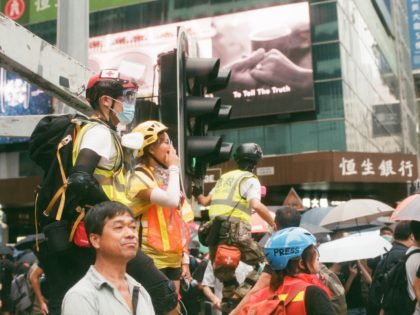
Hong Kong protesters joined hands on Friday and formed a 28-mile-long human chain linking 39 railroad stations, with an American flag raised at the center.
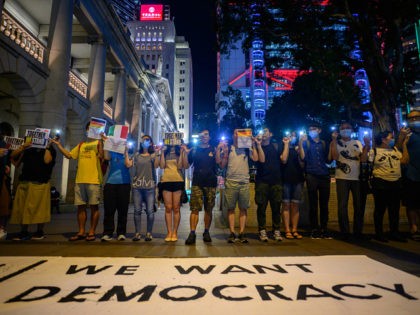
Hong Kong’s pro-Beijing chief executive Carrie Lam spun this weekend’s titanic peaceful protest as a victory for her administration on Monday, claiming the lack of violence was a sign the city is “returning to peace” and vaguely offering a “platform for dialogue with people from all walks of life” to find “a way out” of the crisis.
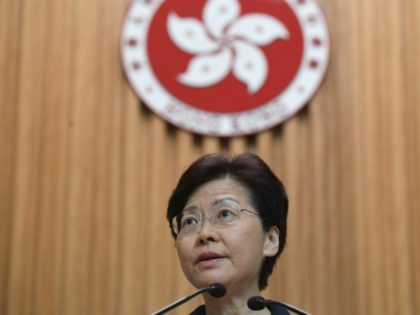
The pro-communist China leader of Hong Kong Carrie Lam fielded tough questions during a press conference Tuesday amid chaotic pro-democracy protests in the semi-autonomous Chinese region.
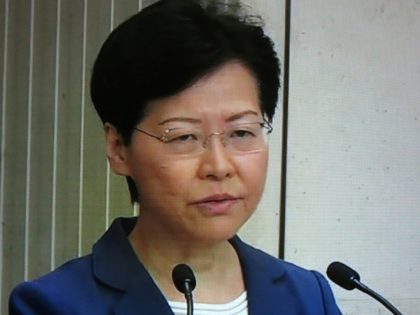
President Donald Trump floated a potential “personal meeting” with chairman of the Chinese Communist Party Xi Jinping on Wednesday to discuss ongoing protests in Hong Kong. The president highlighted Xi’s public absence in the struggle as China’s only capitalist city pushes Beijing away.
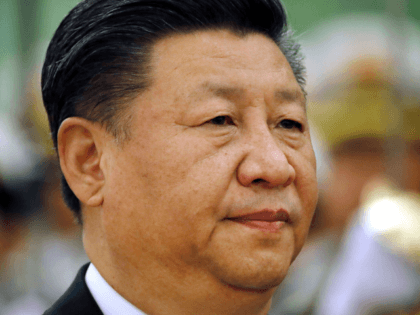
Hong Kong’s embattled chief executive Carrie Lam lashed out against the immense protest movement on Tuesday, accusing “hard-hearted” demonstrators of using “hate speech against the police” and trying to “push the city into the abyss of destruction.”
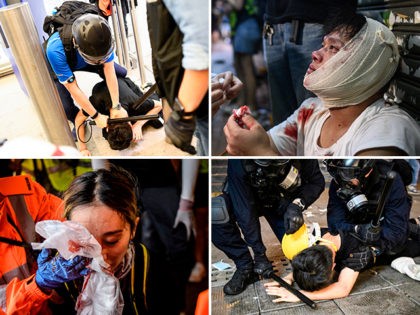
Researchers surveying the journalists covering the ongoing Hong Kong protest movement found that upwards of 90 percent of journalists covering the July 28 protest suffered health effects such as difficulty breathing and coughing blood when police fired liberal amounts of tear gas at the crowds, the Hong Kong Free Press (HKFP) reported Friday.
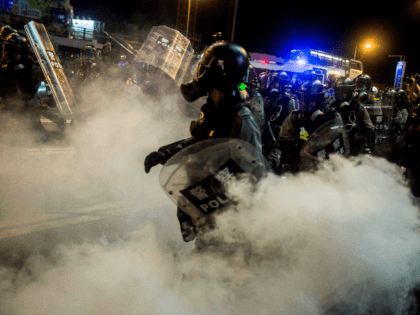
Chinese communist regime authorities staged a 12,000-strong police officer anti-riot drill on Tuesday in Shenzhen to prepare officers to protect “social stability,” a move immediately following a turbulent weekend of anti-communist protests just south of Shenzhen’s border in Hong Kong.
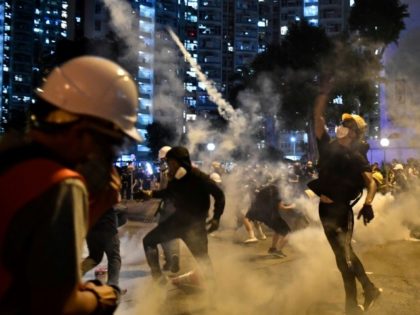
Hong Kong chief executive Carrie Lam again refused calls for her resignation and lashed out at the immense protest movement on Monday, condemning participants as “radical elements” whose goal is to “foment revolution” against Communist China.
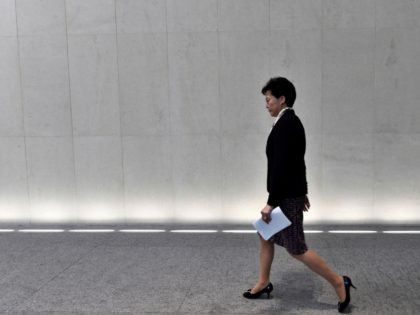
As many as half a million people in Hong Kong refused to go to work on Monday, freezing mass transit in the city and grounding over 200 flights. Police used tear gas and rubber bullets to disperse large crowds of protesters in neighborhoods throughout the city who demanded the Communist Party stay out.
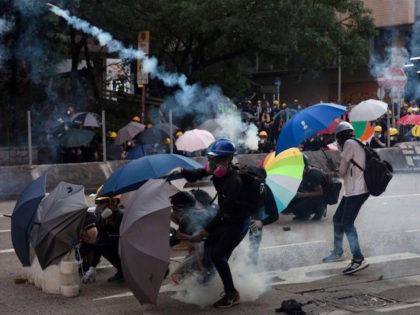
Chinese media is working overtime to paint the Hong Kong protest movement as a gang of violent radicals driven mad by Western propaganda. The latest round of editorial broadsides was fired over charges brought against four protesters for carrying “offensive weapons” to Saturday’s protest at the Yuen Long train station.
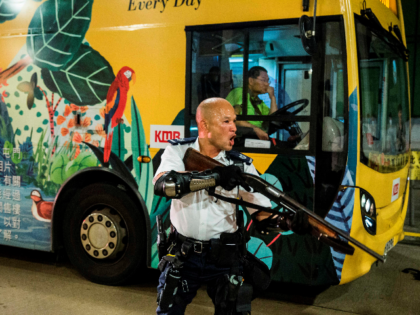
The Chinese government on Monday restated its support for Hong Kong chief executive Carrie Lam, insisted Hong Kong police acted appropriately to control violent protests, and suggested the massive protest movement is filled with unwitting dupes who have been misled about the Chinese legal system.
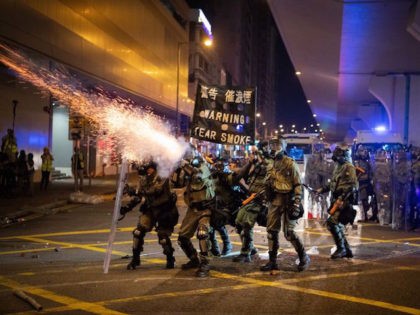
Hundreds of protesters chanting “Free Hong Kong!” filled the Hong Kong International Airport on Friday, seeking attention from international arrivals and demanding a thorough investigation of last Sunday’s mob attack on activists at a train station.
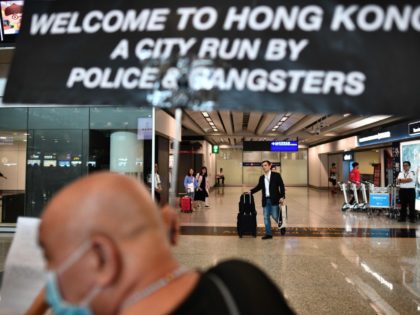
Pro-democracy activists in Hong Kong said Thursday they expect an anti-violence rally scheduled for Saturday to attract even more people after police rejected their request for a permit.
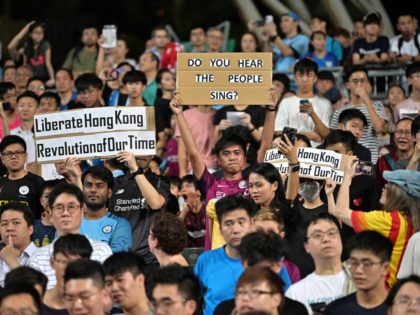
Demonstrations continued in Hong Kong with at least three events planned for this week, including a march by elderly people determined to show that not just hotheaded young students are opposed to the controversial extradition law.
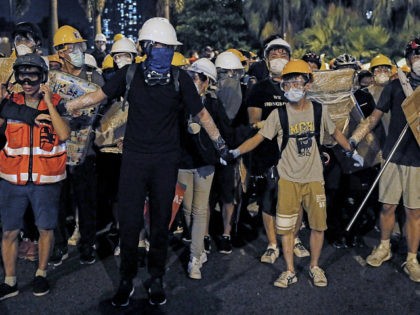
One of the most violent clashes yet between protesters and riot police in Hong Kong on Sunday night left two in critical condition and dozens in police custody after authorities trapped protesters attempting to go home in a shopping mall and attacked them with pepper spray.
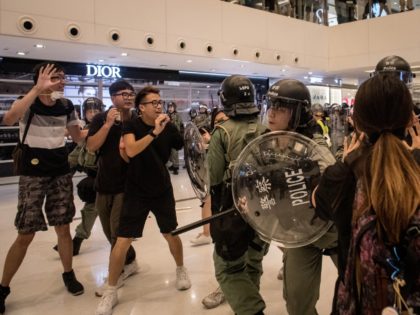
China expert and Asia Times columnist David P. Goldman joined SiriusXM hosts Rebecca Mansour and Joel Pollak on Monday’s edition of Breitbart News Tonight to talk about the apparent victory of the protest movement in Hong Kong.
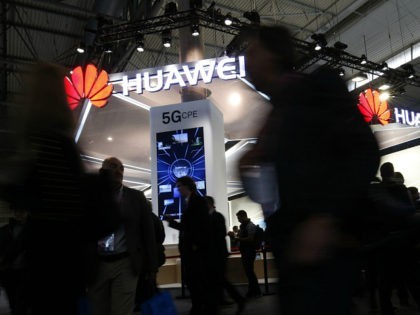
Hong Kong chief executive Carrie Lam attempted to convince pro-democracy protesters on Tuesday to give up their cause, insisting that the extradition bill that brought millions to the streets against it “is dead” and that she is aware that the plan to roll it out was a “total failure.”
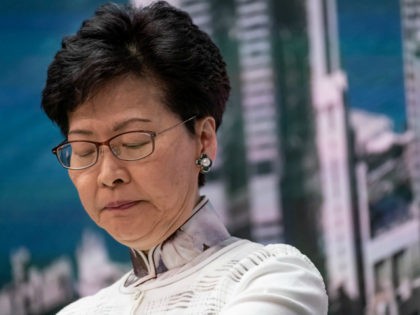
The South China Morning Post revealed on Wednesday that in June the communist government of China stationed a “task force” in Shenzhen, slightly north of Hong Kong, to monitor growing protests in the autonomous city.
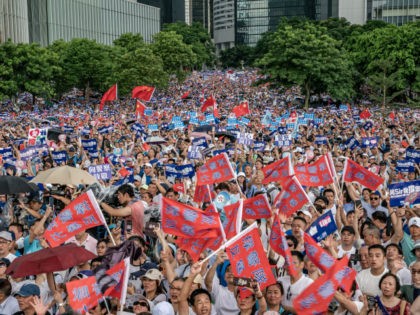
Hundreds of anti-communist protesters in Hong Kong destroyed the legislative council (LegCo) building in the city late Monday, shattering its glass exterior, spray-painting anti-China slogans over its walls, and rendering it unusable, according to city officials.
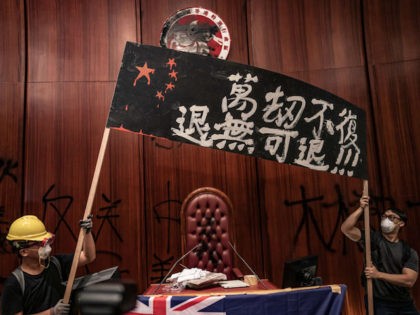
Hong Kong’s anti-China protest movement attracted thousands on Monday to renew protests against a widely reviled Chinese extradition law, prompting police to use tear gas and pepper spray to keep protesters out of the city’s legislative headquarters.
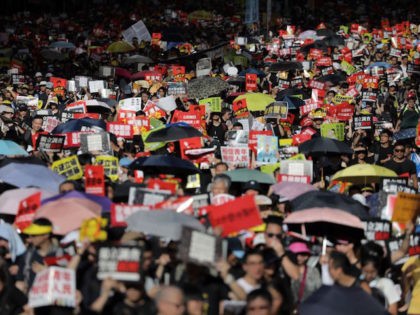
Police in Hong Kong clashed with thousands of protesters on Monday morning as events marking the anniversary of its handover from the UK to Chinese Communist rule spun out of control.
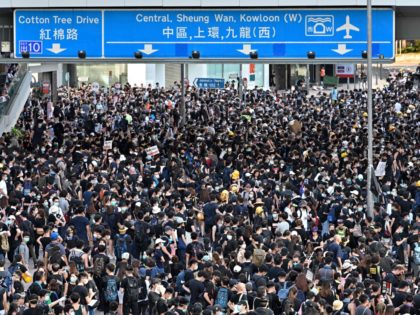
Chinese Assistant Foreign Minister Zhang Jun said on Monday that China will not allow the massive protests in Hong Kong to be discussed at the upcoming G20 summit in Osaka, Japan.
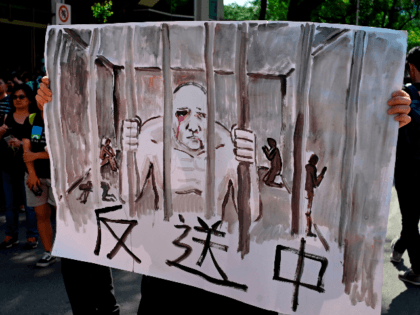
Health workers in Hong Kong accused police of spreading “terror” by arresting at least five anti-communist protesters while they received treatment at local hospitals for police-inflicted wounds. Police also allegedly eavesdropped on doctors’ treatments and made arrests without showing a warrant.
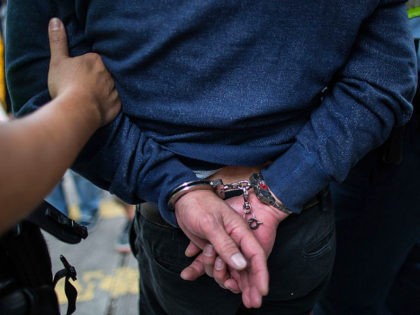
Huge demonstrations continued in Hong Kong on Friday, with the focus of activity shifting from LegCo, the city’s legislative chambers, to police headquarters. The protesters are demanding a permanent and decisive end to the controversial extradition bill that was indefinitely suspended by chief executive Carrie Lam last weekend.
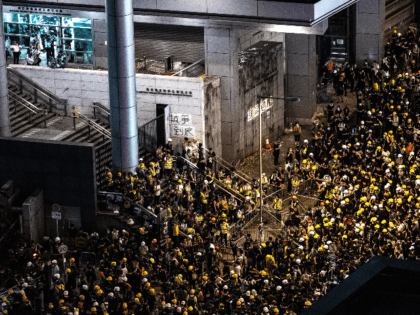
Hong Kong demonstrators have adopted “Sing Hallelujah to the Lord” as their unofficial anthem, singing it constantly as they march before the legislative headquarters and demand a permanent end to the recently suspended extradition bill.

A senior city official in Hong Kong told Reuters on Tuesday that China will not allow chief executive Carrie Lam to resign as protesters demanded, even if she wants to. Lam offered more unqualified contrition in her latest public statement but said she intends to remain in office.

The government of Hong Kong issued a statement Sunday apologizing to its people for triggering widespread protests with a proposed extradition bill many fear could result in the mass incarceration of pro-democracy Hong Kongers to communist China. The apology appeared to do little to quell calls for chief executive Carrie Lam to resign.
